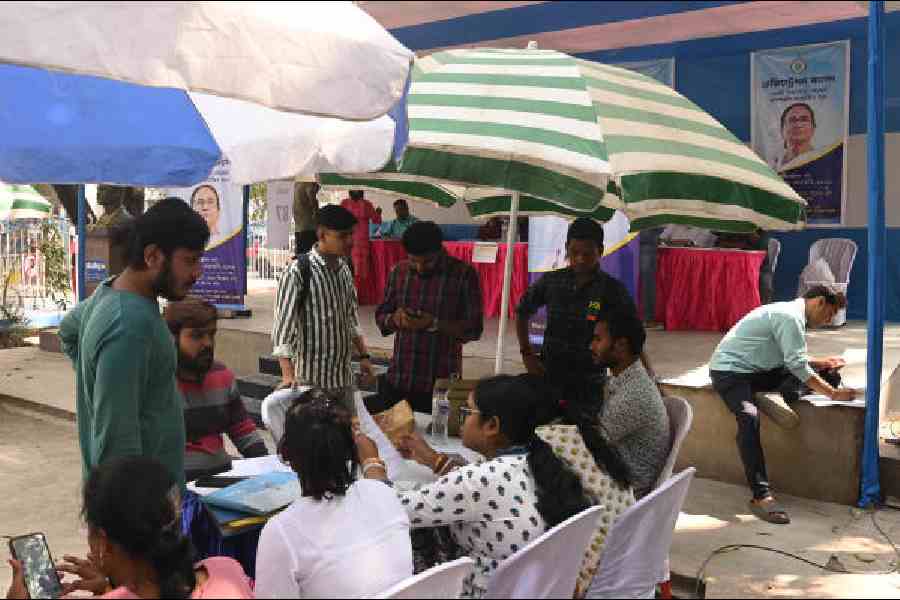 |
| Sushil Shingla addresses DFOs in Ranchi on Monday. Picture by Prashant Mitra |
Ranchi, Aug. 26: Jharkhand farmers can think of scripting a sweet success story with little help from the National Bee Board (NBB) and the state forest department.
In a bid to provide supplementary income to those living in forest areas, the board has asked the forest department to encourage farmers to take up bee-keeping and eventually form clusters of madhu grams (bee colonies).
“The country produces about 65,000 metric tonnes of honey every year, but the consumption is much less and therefore, half of it is exported,” said Sushil Shingla, executive director of NBB.
While addressing divisional forest officers at the forest headquarters in Ranchi today, Shingla requested them to motivate the farmers in bee-keeping, as honey was high in demand and would provide good supplementary income.
The board will also train them, provide bees and apiaries besides making other arrangements so that they can sell the product in the market.
The honey produced in Jharkhand will be of high quality, as the state has good forest cover, undertakes organic farming and uses less pesticide.
Thus, Jharkhand honey, particularly the karanj and litchi varieties, will easily meet export standards, hoped the executive director.
“After receiving the first communiqué from the board in December last year, I encouraged 350 farmers to take up bee-keeping in Dalma and Palkote in Singbhum and Silli in Ranchi,” said state PCCF A.K. Malhotra.
He pointed out that if more farmers were roped in, they could form clusters of madhu grams, thereby making the process of collecting honey a much easier task.
Citing the instance of Gujarat, he added, “If the plan is translated into action, honey will change the face of rural Jharkhand, exactly the way milk did in Gujarat.”










